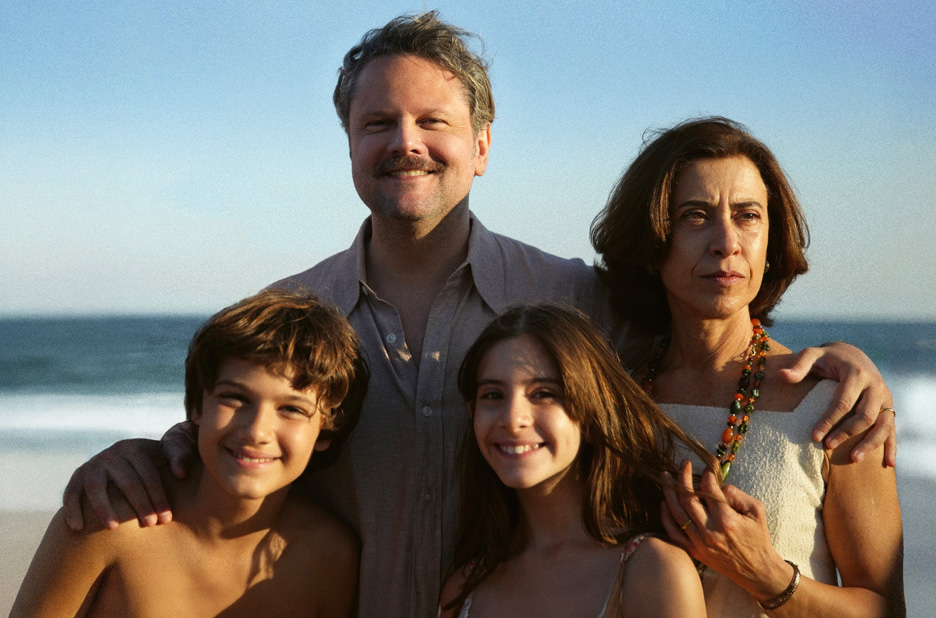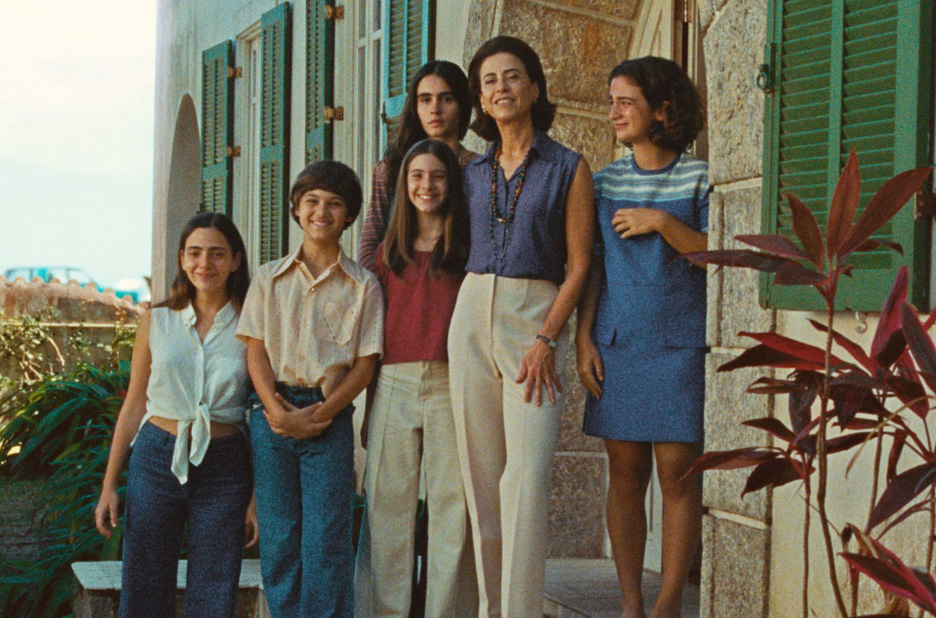Film
I’m still here (2024)
Walter Salles
5/5
Sunny scent of nostalgia
This beautifully paced, gentle, emotionally generous and achingly sad film tells the story of a tragedy that strikes a happy well-off Brazilian family during the years of military dictatorship. Based on a memoir by the son, Marcelo Rubens Paiva, published in 2015, the screenplay by Murilo Hauser and Heitor Lorega deservedly won the best screenplay award at the Venice Film Festival in 2024.


As the film begins we are immediately drawn into the Paiva’s family charmed and relaxed life. Rubens Paiva, his wife Eunice and their five children, four girls and one boy between the ages of 10 and 18, live in a gorgeous house on the beachfront in Rio which is buzzing with friends, conversation, food, sunshine and music. The mix of blurred hand-held and more conventional dynamic shots is so suggestive that never having visited South America in my life, I could swear I have a genetic memory (now implanted by this film as a false memory) of this Rio of the 1970s which flits in front of your eyes, like a mirage of an earnest and carefree time on a different planet. Soon the atmosphere starts to shift and one day ununiformed soldiers come to the Paiva’s house to take Rubens away, followed by arresting Eunice and their teenage daughter Eliana the following day.
The daughter is released after a day, Eunice after 12 days, but Rubens never comes home. Over time we understand that he was murdered by the regime, but the authorities only confirm his death 25 years later. As much as Eunice doesn’t want to let it, the life of the family changes irremediably. Eventually she sells their house and they move to San Paulo where she goes back to college and becomes a prominent human rights lawyer. Although the story is about the disappearance and murder of Rubens, the chief protagonist is his wife – beautifully played by Fernanda Torres – her contained anger and sadness, her refusal to be a victim, her resilience in protecting her children and finding a way to reinvent herself.

The cast is remarkable: Fernanda Torres is a towering lead, Selton Mello embodies the easy and confident jovial charisma of her husband Rubens, the children actors playing the five children are effortless and convincing, the two youngest in particular, Guilherme Silveira as Marcelo and Cora Mora as Babiu charm us with their genuine presence. In an inspired casting decision, in the final section of the film Eunice in her old age with Alzheimer’s is played by Fernanda Torres’ mother, Fernanda Montenegro, another famous actress from Brazil. In a few short scenes she makes us feel that Eunice is still here.
Right wing groups in Brazil unsuccessfully tried to boycott the film. It’s extraordinary that the denial of Brazil’s murderous dictatorship still persists today, 40 years on. One of the strengths of Selles’ film is in showing us the victims to be the nicest people you could possibly imagine. What better way to irremediably condemn the repression of a dictatorship. The grievances of those who have suffered have not gone away and the popularity of this film in Brazil testifies to the need to know and mourn this common history.

The brief footage of the family house on the beachfront in Rio filmed by the eldest daughter on her handheld camera as the family leaves Rio for the last time will stay with me in all its emotional richness. The mayor of Rio has announced that this house where the film was shot will become a film museum, Casa do Cinema Brasileiro, “a permanent memorial to the story of Eunice Paiva and her family, of democracy, and also a tribute to the two great women who make Brazil proud (…) – Fernanda Torres and Fernanda Montenegro.”
This sunny homage to Eunice, Rubens and their children, told through the lens of nostalgia of younger family members, with a beautiful soundtrack, confirms that you can have the last word when fighting extreme injustices at the hands of a much stronger adversary, even if it comes in the form of a work of art many years later.